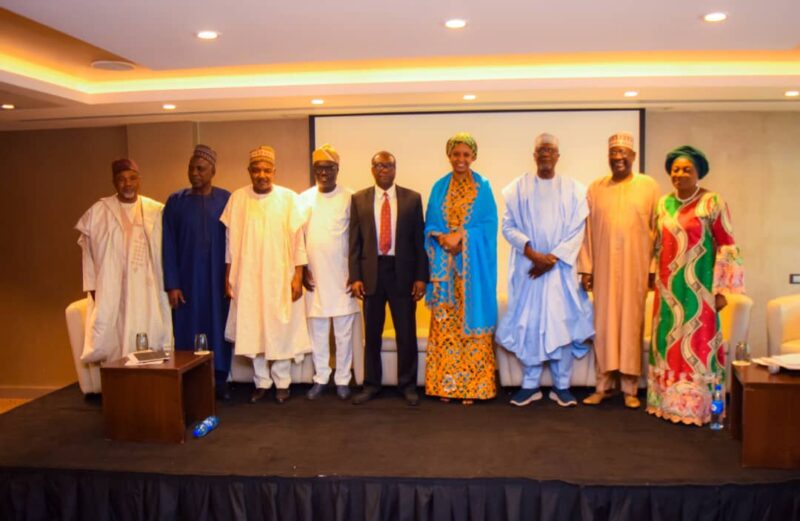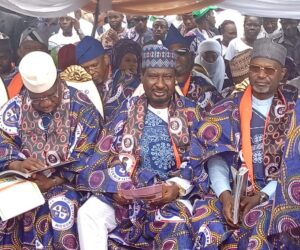By Vivian Emoni
The Federal Government has taken a significant step towards reforming the nation’s revenue sharing system, engaging with key stakeholders to develop a more responsive and adaptable model.
Dr Mohammed Shehu, Chairman of the Revenue Mobilisation Allocation and Fiscal Commission (RMAFC), disclosed this at a Panel Discussion on Review of the Revenue Allocation Formula, on Tuesday in Abuja.
Shehu said the effort was to strengthen the fiscal foundations of the federation, to enhance equity and ensure that the fruits of national prosperity were fairly shared among the tiers of government.
He said the formula currently in operation was approved in 1992 and clearly no longer reflecting the economic, demographic and constitutional realities of the time.
“Since then, our economy has diversified, population has surged beyond 230 million, expenditure pattern has expanded, and the structure of governance itself has changed through constitutional amendments that devolved certain responsibilities.
“These changes compel a bold, data-driven and inclusive review of the formula, which is precisely why we are gathered here today.
“The essence of this panel discussion is to stimulate informed dialogue among stakeholders from diverse sectors in government, academia, development partners and civil society.
“The dialogue is to see how best to restructure Nigeria’s revenue sharing system to reflect current socioeconomic realities and global best practices,” he said.
Shehu said that the commission expected the deliberation to deepen understanding of the historical and constitutional context of fiscal federalism in Nigeria.
He added that the expectations from the discussion were also to examine the emerging fiscal pressures and developmental disparities among the tiers of government.
“We also expect the deliberation to explore innovative approaches and measurable indicators for revenue allocations, among others.”
The chairman said since the official commencement of the review exercise, the commission had carried out various assignments such as engaging experts, MDAs and international development partners to strengthen the analytical basis of the proposed formula.
He said the commission had also developed preliminary models for the formula, conducted policy workshop to keep members of the commission abreast of the technicalities involved in the review, among others.
According to him, through this step, the commission has demonstrated its commitment to a transparent, evidence-based and inclusive process that commands public confidence and aligns with constitutional provisions.
“The success of this review cannot be measured merely by the figure we are about to propose, but by the degree of national consensus we build around those figures.
“It is, therefore, essential that every stakeholder see themselves as co-architects of a renewed fiscal order that promotes fairness, fiscal responsibility and balanced development.
“Our goals are to design a formula that empowers sub-national governments to meet their constitutional obligations effectively while maintaining national cohesion and macro-economic stability,” he said.
The Minister of Budget and Economic Planning, Sen. Abubakar Bagudu, emphasised on the need to prioritise addressing insecurity challenges across the country.
Bagudu said that more money should be put into the sector, adding that such commitment would improve safety and increase economic stability.
Hajia Hadiza Usman, Special Assistant to the President on Policy Coordination, said that President Bola Tinubu had given a directive to ensure that there was a review of the structure.
“We are looking at the errors within the constitution to ensure that there is a revised formula that recognises the allocations of resources that we have as a country.
“We are also looking at the international best practice that recognises our futures of government and holds the commission itself accountable on areas of mobilisation of resources and ensuring that there is clarity on allocation,” she said. (NAN) (www.nannews.ng)
Edited by Isaac Aregbesola








